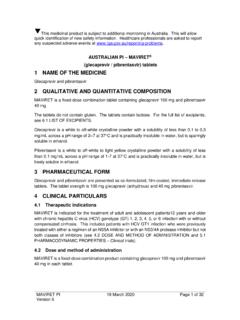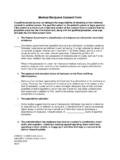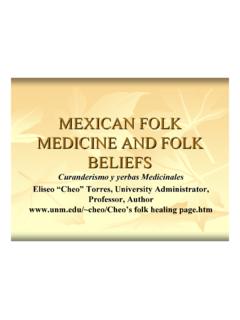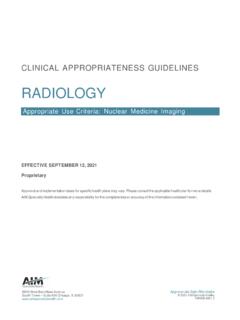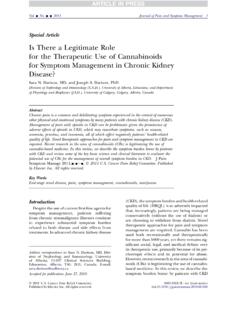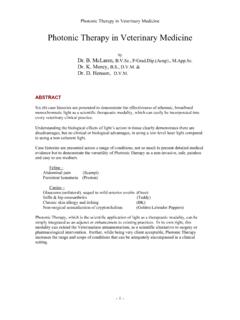Transcription of Rethinking medicines decision-making in Australian Hospitals
1 Rethinking medicines decision - making in Australian HospitalsGuiding Principles for the quality use of off-label medicinesNovember 2013 Council of Australian therapeutic Advisory Groups. Rethinking medicines decision - making in Australian Hospitals . Guiding principles for the quality use of off-label medicines . Council of Australian therapeutic Advisory Groups; 1. Revision date: November 2015. Design by O Kelly Branding and of Australian therapeutic Advisory GroupsC/- NSW therapeutic Advisory GroupPostal Address: PO Box 766 Darlinghurst NSW 2010 Office Location: 26 Leichhardt St, Darlinghurst NSW 2010 Phone: (02) 8382 2852 Fax: (02) 8382 3529 Email: Web: 2013 Council of Australian therapeutic Advisory Groups2 CATAG | Council of Australian therapeutic Advisory GroupsExecutive Summary.
2 4 Overview ..6 Purpose ..6 Background ..6 Context ..7 Definition ..7 Scope ..7 GUIDING PRINCIPLES 8 Guiding Principle 1: Consider the off-label use of a medicine only when all other options, including medicines approved by the TGA, are unavailable, exhausted, not tolerated or unsuitable ..10 Guiding Principle 2: Use high-quality evidence to determine appropriateness of off-label medicine use ..10 Guiding Principle 3: Involve the patient/carer in shared decision - making when recommending an off-label medicine ..12 Guiding Principle 4: Consult the Drug and Therapeutics Committee when prescribing an off-label medicine , except when the use of a medicine off-label is considered routine.
3 13 Guiding Principle 5: Ensure appropriate information is available at all steps of the medicines management pathway ..14 Guiding Principle 6: Monitor outcomes, effectiveness and adverse events ..15 Guiding Principle 7: Consider liability and accountability when using medicines off-label ..15 References ..16 APPENDICES 18 Appendix 1: How these guiding principles were developed ..18 Appendix 2: Recommendations for the future ..20 Appendix 3: Types of studies and research evidence needed to evaluate off-label use of medicines in the paediatric population ..21 Appendix 4: Examples of information sources to support decisions about appropriate use of off-label use of medicines ..23 ContentsRethinking medicines decision - making in Australian Hospitals | November 2013 3 The purpose of these Guiding Principles is to provide a framework to support the quality use of off-label medicines in Australian public Hospitals .
4 These principles are intended to assist decision - making by health professionals, consumers and Drug and Therapeutics Committees in the evaluation, approval and use of these medicines . The term off-label is applied when a medicine is used in ways other than specified in the Australian therapeutic Goods Administration (TGA) approved product information, including when the medicine is prescribed or administered: for another indication at a different dose via an alternate route of administration for a patient of an age or gender outside the registered use. The clinical, safety, ethical, legal and financial issues related to the off-label use of medicines , require a careful and responsible approach to ensure delivery of quality use of medicines (QUM) to the Australian public.
5 These Guiding Principles seek to support QUM and to minimise unintended harm by providing a framework for general, off-label use of a medicine should only be considered when the TGA approved use of a registered medicine does not address the clinical needs of patients. In determining the appropriateness of using a medicine off-label, there should be sufficient evidence to support its efficacious and safe use, and an overall favourable harm: benefit ratio for the intended clinical use and population. These Guiding Principles are a guide for the decision - making process, based on a systematic evaluation of the evidence of harm and benefit of the proposed use. The following four categories of off-label use depend on the level of supporting evidence and clinical circumstances: routine use exceptional/individual use conditional use, with evidence development research or investigational use.
6 Use is not recommended, when a proposed off-label use does not fall into one of these four for institutional approval, informed consent, outcome evaluation and monitoring are provided for each Summary4 CATAG | Council of Australian therapeutic Advisory GroupsTHE OVERARCHING GUIDING PRINCIPLES ARE:1. Consider the off-label use of a medicine only when all other options, including the use of medicines approved by the TGA, are unavailable, exhausted, not tolerated or unsuitable. 2. Use high-quality evidence to determine appropriateness of off-label medicine Involve the patient/carer in shared decision - making when recommending the use of an off-label Consult the Drug and Therapeutics Committee when prescribing an off-label medicine , except when the use of a medicine off-label is considered Ensure appropriate information is available at all steps of the medicines management Monitor outcomes.
7 Effectiveness and adverse Consider liability and accountability when using medicines medicines decision - making in Australian Hospitals | November 2013 5 PurposeThe purpose of these Guiding Principles is to provide a framework to support the quality use* of off-label medicines in Australian public Hospitals . These principles seek to assist decision - making by health professionals, consumers and Drug and Therapeutics Committees (DTCs) in the evaluation, approval and use of these For a medicine to be marketed in Australia, it must have approval from the therapeutic Goods Administration (TGA). This is to ensure that the medicine meets Australian standards for quality, safety and effectiveness.
8 The process is initiated by the sponsor, who applies to the TGA for approval of a medicine with indications, doses and routes of administration nominated by the The TGA evaluates the information available, taking into account whether the safety, quality and efficacy of the medicine is established satisfactorily for the purposes for which it is to be used. Approval will be for specific indications (population and disease), doses and routes of administration. All elements of the TGA s decision are reflected in the product information (PI) (also approved by the TGA) and in the entry for the medicine in the Australian Register of therapeutic Goods (ARTG). The indications for which the sponsor seeks TGA approval may be influenced by other factors, such as commercial considerations of the sponsor, the TGA approved medicine may not reflect the full range of indications for which there may be evidence that the medicine could effectively and safely be ,3 Also, the indications approved by the TGA may not be as extensive as those sought by the sponsor in the application.
9 The sponsor pays all the costs of this process, which also includes the cost of evaluation by independent experts appointed by the TGA. These costs may serve as a disincentive for the sponsor to seek TGA approval or update the PI when new information becomes available, especially for medicines or uses with a small market ( rare diseases) or for off patent approved for marketing in Australia, the process does not preclude the medicine being used off-label, for indications, doses or routes other than those specified in the TGA approved Lack of TGA approval of a medicine does not imply that a drug is ineffective, contraindicated or disapproved. It may mean that it is not economically viable for the sponsor to seek approval (despite good evidence to support use).
10 It may also mean that there is insufficient evidence for approval or the effectiveness and safety of the medicine in a particular situation has not been Furthermore, there may be ambiguity around whether a medicine is approved in a certain setting and would be considered off label. This is complicated by a lack of clarity in the language used in the approved PI, particularly for older use of medicines is a common therapeutic strategy for many clinicians and patients in Australia, especially in specialised care settings. In some circumstances, off-label use of a medicine may represent the best available option for a patient or the standard of The off-label use of medicines allows patients to access innovative and potentially useful new medicines or older medicines for new indications, doses or routes based on recent In patient groups, such as paediatrics, oncology, psychiatry and palliative care, off-label use of medicines is prevalent9 and may provide the only treatment widespread nature of off-label prescribing in the paediatric population is well documented.


